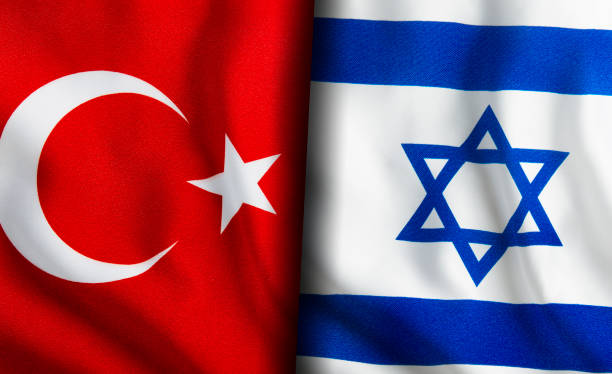
Israel has issued a warning of potential retaliation in response to Turkey’s decision to ban the export of 54 items to Israel until the conflict in Gaza ends. Israel’s Foreign Minister, Israel Katz, has instructed the Economic Division of the Foreign Ministry to prepare a detailed list of products that should be banned from being exported from Turkey to Israel, indicating the start of a trade war.
Turkey’s exports to Israel experienced a 28% decrease to $1.9 billion during the first five months of the conflict in Gaza. In the first two months of this year, Turkey exported goods worth $714 million to Israel, with one-third of the figure being manufactured items. The trade restrictions that Turkey has imposed include a variety of goods such as construction equipment, bricks, chemicals, steel, fertiliser, aluminium, cement, and jet fuel. Over half of the exports from Turkey to Israel consist of quarrying, machinery, and metals, which are primarily used for construction purposes in Israel. The absence of Turkish cement is a significant concern for Israel, which relies heavily on it due to having only one operational cement plant. Furthermore, as Turkey is Israel’s fifth-largest source of imports, a prolonged trade dispute could significantly harm both nations.
On Tuesday, the Israeli Foreign Ministry stated that it will not give in and is planning to take measures that could harm the Turkish economy. They alleged that Erdogan’s support for Hamas in Gaza takes precedence over the economic welfare of the Turkish people. Israel has also requested that the American Congress investigate Turkey’s possible breaches of boycott laws against Israel and consider imposing sanctions.
The conflict in Gaza has brought an end to the slow improvement in Turkish-Israeli relations that led to the reinstatement of ambassadors in 2022. When the Israel-Hamas conflict began, Turkey and Israel recalled their ambassadors and traded insults.
Since the outbreak of the war in Gaza, Turkey has taken diplomatic measures against Israel. One of these measures includes supporting the charges in the International Court of Justice in The Hague. In January, Turkey removed Israel from its list of export target countries. This decision means that Turkey no longer encourages its residents to subsidise trade or support businesses that work with Israel. It also sends a message to Turkish companies that the state will not assist them if they choose to trade with Israel.
Over the past few years, Turkish President Recep Erdoğan has made hostile statements, which have led to a decline in Turkish imports to Israel. In 2023, Turkey exported goods worth $5.42 billion to Israel, down from $7 billion in 2022. Similarly, Israel exported goods worth $1.5 billion to Turkey in 2023, down from $2.5 billion in 2022.
Erdoğan has maintained relations with the leadership of Hamas and has refused to declare the group a terrorist organisation. Following the recent municipal elections in Turkey, Erdoğan’s Islamic party has suffered several setbacks. As a result, he has faced pressure from within the country to halt trade with Israel.
In recent weeks, Turkish President Erdoğan has been facing criticism for his government’s commercial ties with Israel. This has led to some anti-government protests and a decline in popular support. According to the Turkish constitution, Erdogan is in his last term of office and is already thinking about the political situation after the war in Gaza.
Before the Israel-Hamas conflict, Erdogan tried to strengthen his political power by cooperating with Israel and making Turkey a major player in the transport of natural gas. However, if Hamas loses in Gaza, his voter base in Turkey will perceive it as a failure of his presidency. As a result, Erdogan is doing everything he can to get Israel to stop the fighting, or at least be seen as the one who did everything possible to end it.
Since Israel’s trade alternatives to Turkey are with East Asia, where supply times are much longer, or with Europe, where prices of goods are much higher than in Turkey, the country is a crucial trade partner for Israel. Without trade shipments from Turkey for steel, fertiliser, aluminium, cement and jet fuel, alternative shipments would have to take a 60-day route from East Asia. Europe, as an alternative, is much more expensive.
As Turkey is Israel’s fifth-largest source of imports, a prolonged trade war could significantly harm both nations. However, Israel is especially vulnerable as it heavily relies on Turkey for its construction materials and alternative options are either costly or lengthy. Additionally, Erdogan is consolidating his political power by restricting trade, as there is increasing pressure from domestic actors in Turkey to distance themselves from Israel.
By The European Institute for International Relations














